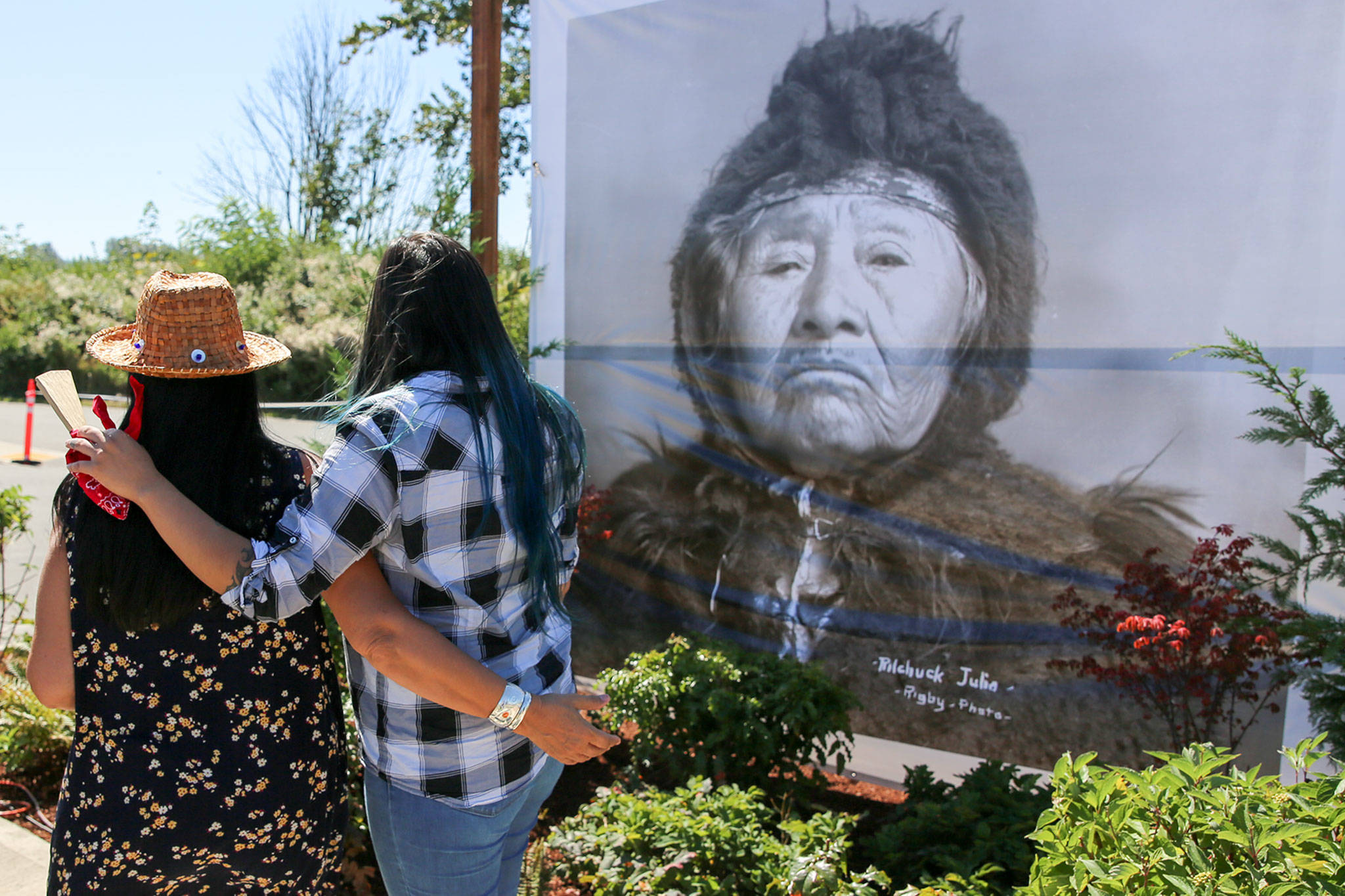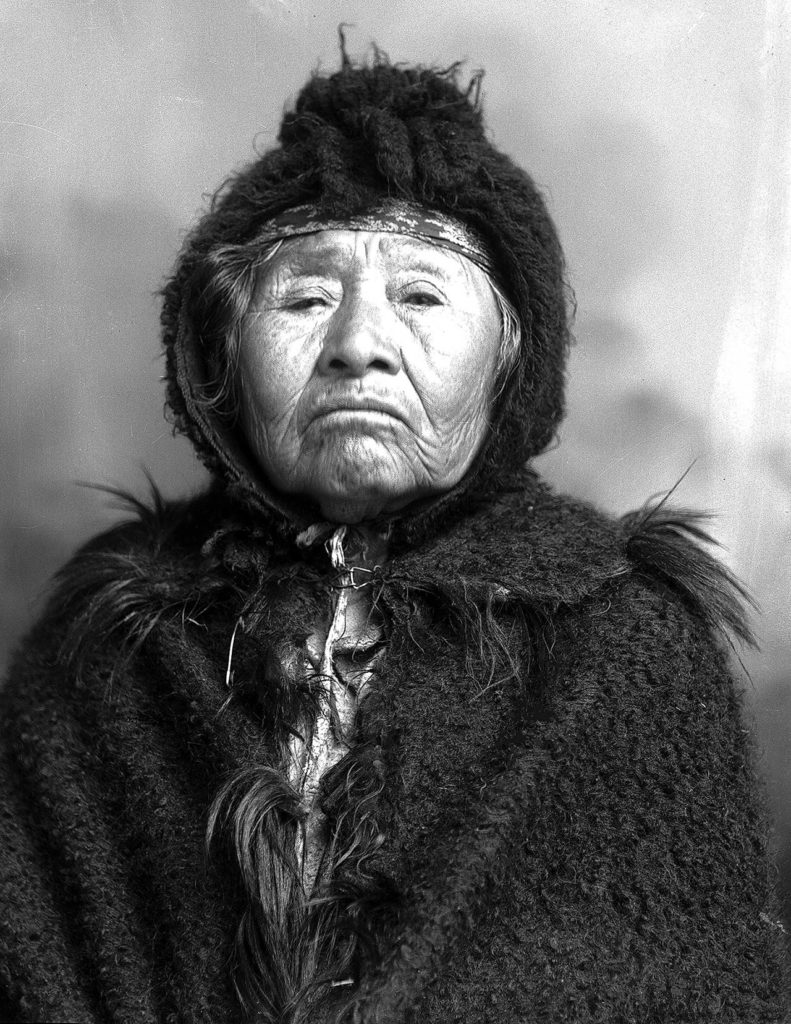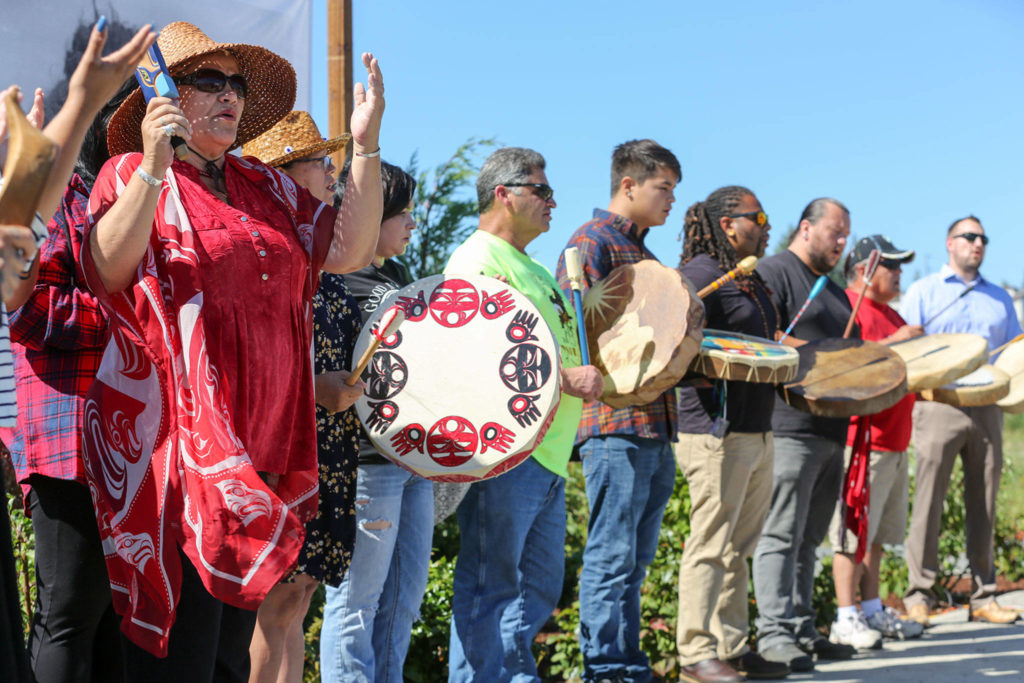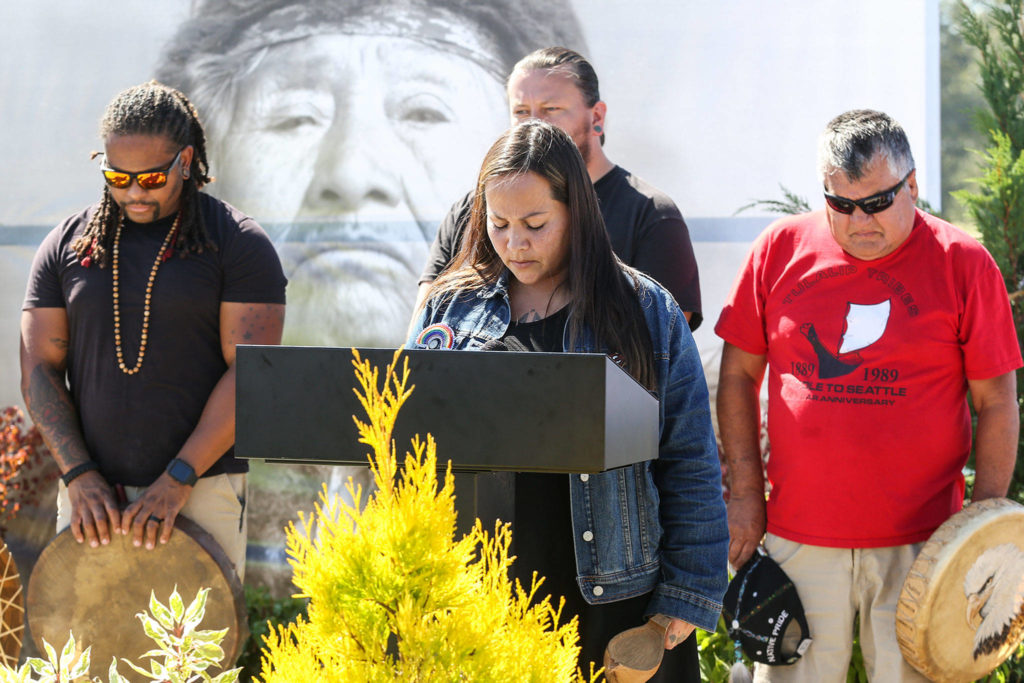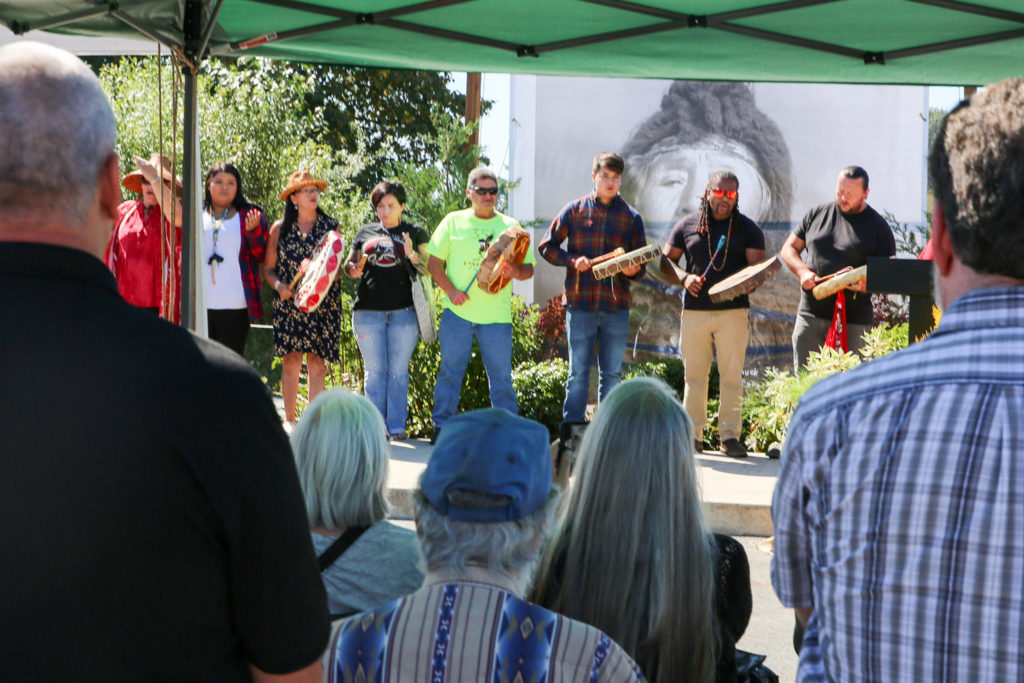SNOHOMISH — Under her watchful gaze, members of the Tulalip Tribes gathered Tuesday to recognize Pilchuck Julia.
Her oversized portrait loomed large as they played drums and sang in a 20-acre park that has been dedicated to the memory of the Snohomish tribal elder who died nearly a century ago.
“She made a beautiful day for us today, and I’d like to thank her for that,” said Teri Gobin, chairwoman of the Tulalip Tribes.
Pilchuck Julia Landing, on the outskirts of Snohomish at 20 Lincoln Ave., includes a boat launch to the Snohomish River and a large grass field. Someday the field could become a grove with a trail that stretches to downtown Snohomish, but no plans have been set, said Linda Redmon, a Snohomish councilwoman.
A committee to name the park was formed a few years ago. After some research, the city decided to name the land after Pilchuck Julia, who was known for her ability to predict the weather. They started to work with the Tulalip Tribes, and settled on Pilchuck Julia Landing.
“To be able to (name) it the correct way, and the way that will last for generations, that is something to be really happy with,” Redmon said.
Not much is known about Pilchuck Julia’s early life, because records were not written down but passed through generations.
Pilchuck Julia married a man named Pilchuck Jack, a member of a band of the Snohomish Tribe. They lived in a village where the Snohomish and Pilchuck rivers met.
It’s unclear if anyone knows what their names were in Lushootseed, the traditional language of certain tribes in the region. Settlers likely called them Jack and Julia, and Pilchuck could have referred to the place they lived.
The Snohomish Tribe became part of the Tulalip Tribes at the 1855 signing of the Point Elliot Treaty. It has been said that Pilchuck Julia attended the ceremony.
She reportedly died from smallpox in 1923 at her home in Snohomish. She would have been around 80 years old.
On Tuesday, Tulalip Tribes member Patti Gobin gathered with others to sing traditional songs and bless the land. She remembers her grandmother telling stories about Pilchuck Julia.
“She said there was not a stronger woman than Pilchuck Julia,” Gobin said. “There wasn’t somebody that was as innovative as Pilchuck Julia during difficult times.”
Pilchuck Julia was known to catch fish from the same river that flows past the park, and sell it in town. Gobin is proud that the tribes and Pilchuck Julia are being honored in the place she once lived.
“She is here now, she is with us and amongst us,” Gobin said. “She’s been waiting for this day to be acknowledged as the first people of this land.”
Stephanie Davey: 425-339-3192; sdavey@heraldnet.com; Twitter: @stephrdavey.
Talk to us
> Give us your news tips.
> Send us a letter to the editor.
> More Herald contact information.
